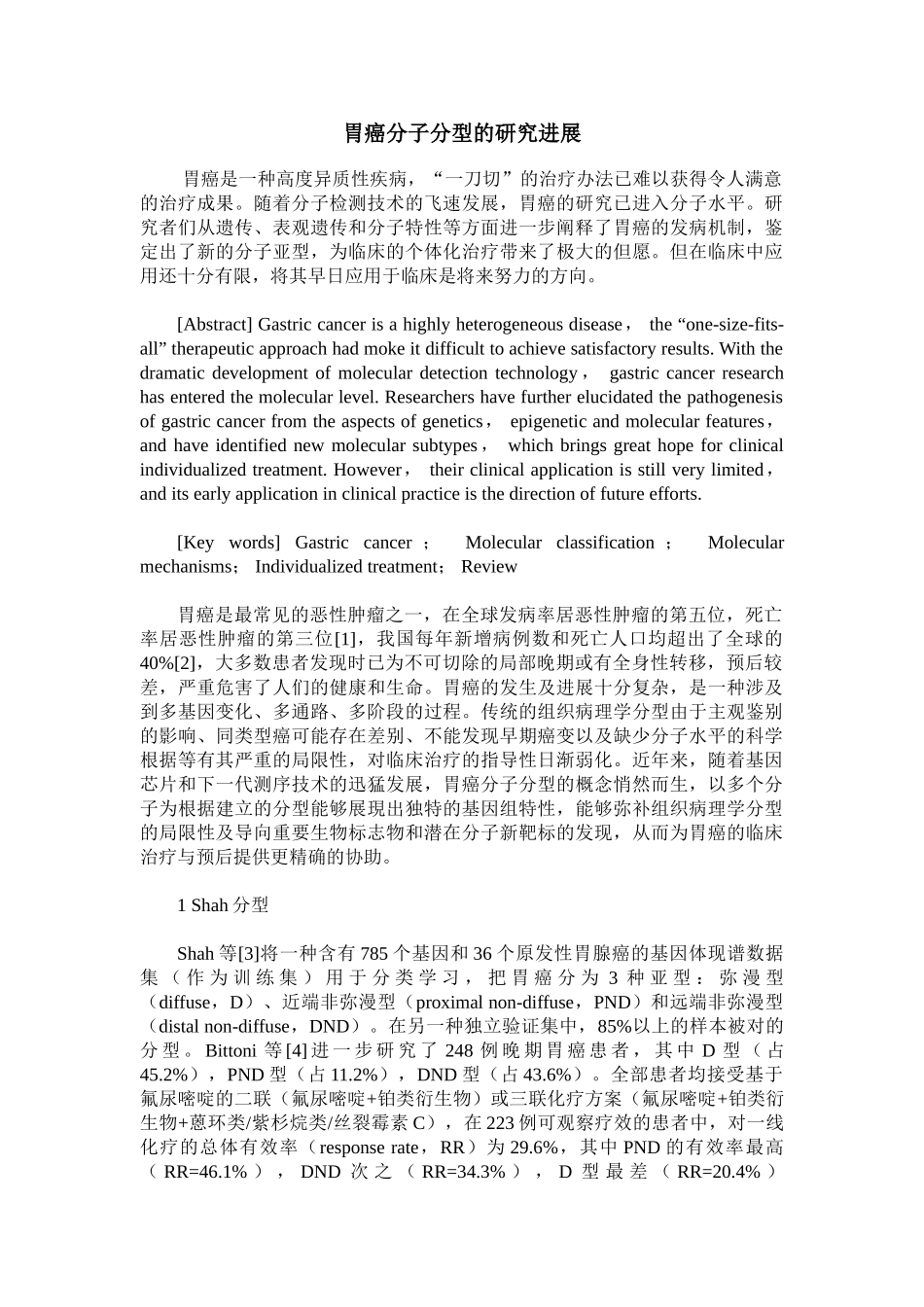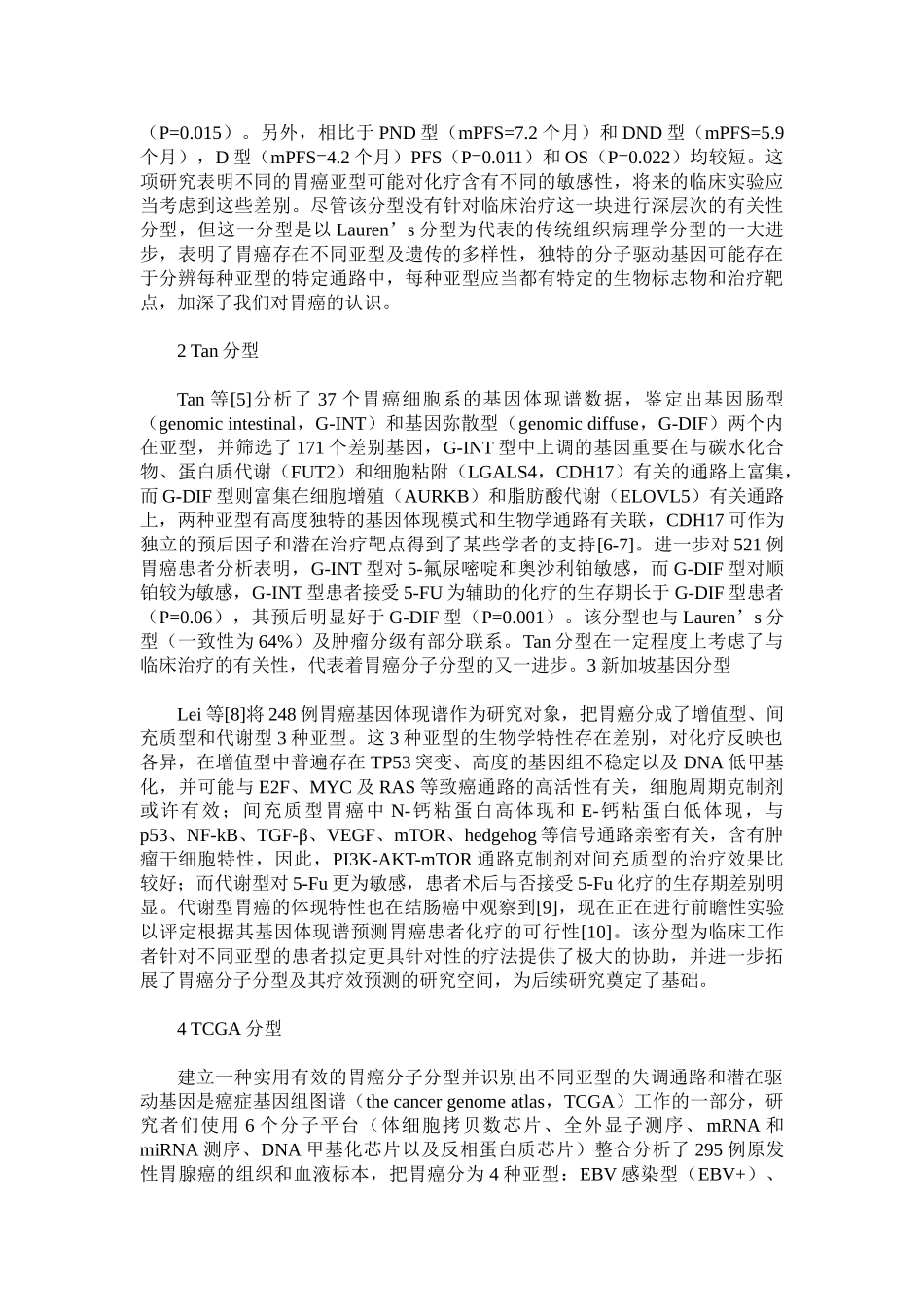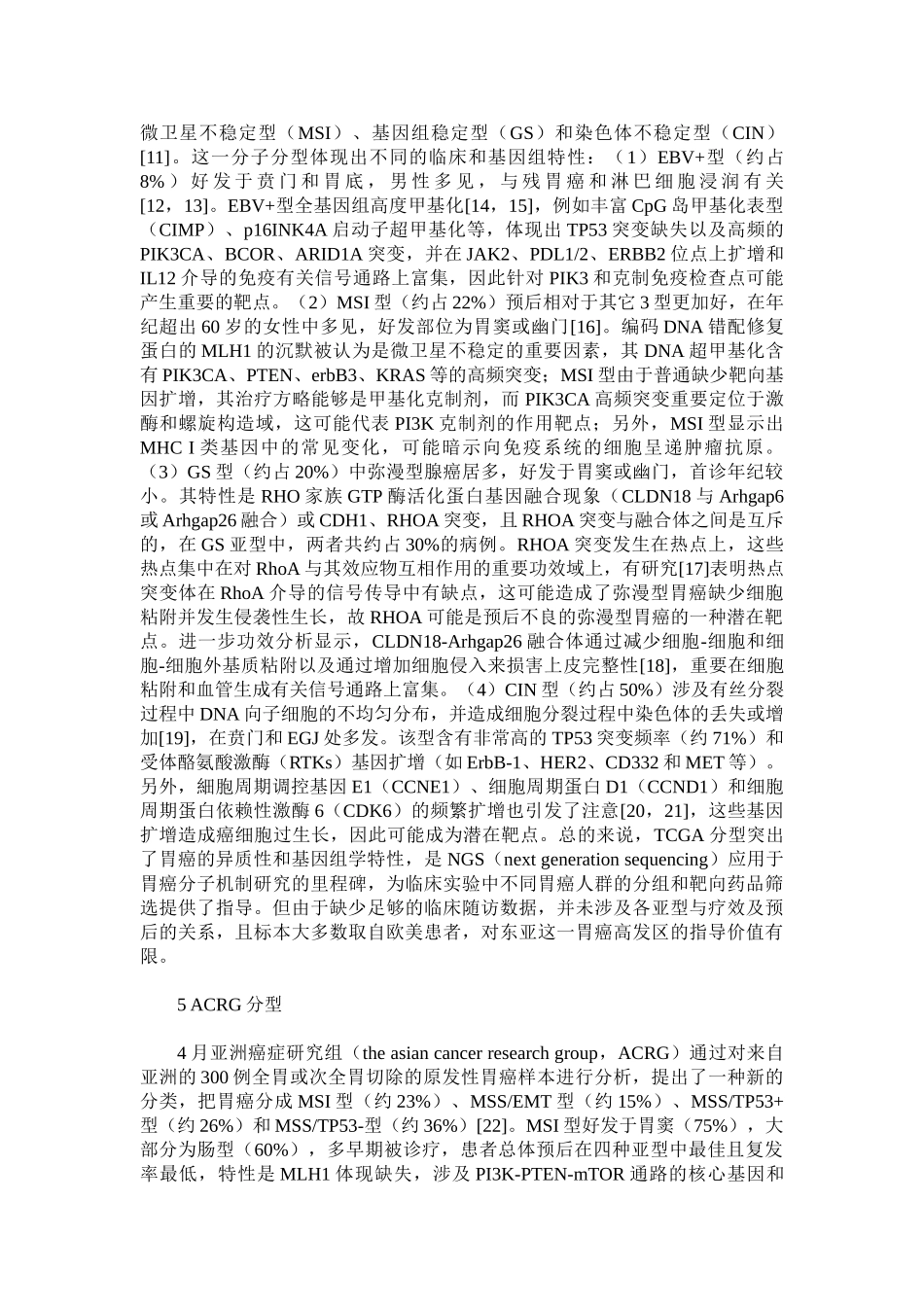胃癌分子分型的研究进展 胃癌是一种高度异质性疾病,“一刀切”的治疗办法已难以获得令人满意的治疗成果。随着分子检测技术的飞速发展,胃癌的研究已进入分子水平。研究者们从遗传、表观遗传和分子特性等方面进一步阐释了胃癌的发病机制,鉴定出了新的分子亚型,为临床的个体化治疗带来了极大的但愿。但在临床中应用还十分有限,将其早日应用于临床是将来努力的方向。[Abstract] Gastric cancer is a highly heterogeneous disease, the “one-size-fits-all” therapeutic approach had moke it difficult to achieve satisfactory results. With the dramatic development of molecular detection technology , gastric cancer research has entered the molecular level. Researchers have further elucidated the pathogenesis of gastric cancer from the aspects of genetics, epigenetic and molecular features, and have identified new molecular subtypes, which brings great hope for clinical individualized treatment. However, their clinical application is still very limited, and its early application in clinical practice is the direction of future efforts.[Key words] Gastric cancer ; Molecular classification ; Molecular mechanisms; Individualized treatment; Review胃癌是最常见的恶性肿瘤之一,在全球发病率居恶性肿瘤的第五位,死亡率居恶性肿瘤的第三位[1],我国每年新增病例数和死亡人口均超出了全球的40%[2],大多数患者发现时已为不可切除的局部晚期或有全身性转移,预后较差,严重危害了人们的健康和生命。胃癌的发生及进展十分复杂,是一种涉及到多基因变化、多通路、多阶段的过程。传统的组织病理学分型由于主观鉴别的影响、同类型癌可能存在差别、不能发现早期癌变以及缺少分子水平的科学根据等有其严重的局限性,对临床治疗的指导性日渐弱化。近年来,随着基因芯片和下一代测序技术的迅猛发展,胃癌分子分型的概念悄然而生,以多个分子为根据建立的分型能够展現出独特的基因组特性,能够弥补组织病理学分型的局限性及导向重要生物标志物和潜在分子新靶标的发现,从而为胃癌的临床治疗与预后提供更精确的协助。1 Shah 分型Shah 等[3]将一种含有 785 个基因和 36 个原...


